


As the servers are filling up, more people than simply beta testers and the occasional writer are joining – and talking about – The Old Republic. There’s the occasional “it’s just World Of Warcraft in Star Wars clothes” which is not entirely invalid, but that’s less interesting than the more common “This is amazing, best massively multiplayer role-playing game I’ve ever played!” As a writer interested in the culture around the new game, this is like catnip. So I asked why.
The answers from multiple people were fascinating. They love the cutscenes and Mass Effect-style dialogue options. One even said “It’s the first MMORPG that’s actually an RPG!” For this person, the idea of role-playing in a video game had become so tied up with the BioWare/Fallout model of dialogue options that online games – where you actually talk to other people using in-game chat – didn’t allow you to role-play. Now, to me, this is absurd, but then, I get a thrill from arguing about what makes for an RPG. The idea that an RPG needs to create an in-game system for your character’s morality and personality is an appealing one, but in a multi-player one, it’s certainly not necessary.
Meanwhile, as I am playing on a role-playing server, I’m noticing a slight frustration among would-be role-players. It’s the little things, but they’re relevant. Most hardcore role-players in my WOW experience preferred to talk using the “/say” command, which gave a small, local bubble above their head for a comic book-like appearance. In The Old Republic, using “/say” is still local, but it’s not a bubble, it just appears in the main chat screen. In a mechanical sense, this is almost totally meaningless, but in an aesthetic sense for devoted role-playing fans, it’s crucial. It will be interesting to see how they – or the game – adapts.
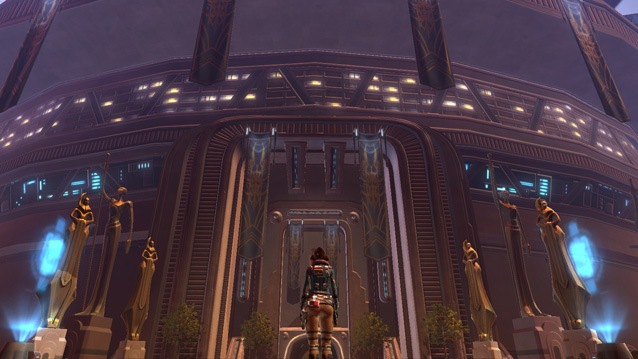
The rush of new players has also led to a series of constant questions, which indicate bugs, flaws in design, or quirks of the interface. On Coruscant, the second Republic world, the most common refrain was “How do I talk to my companion? He wants a private spot in the cantina but it’s not working.” For a few hours, people gave lots of helpful advice before simply saying “It’s a bug. Try a different cantina.” Other questions are easier: “How do I queue for PVP?” It’s a tiny, easy-to-miss button on the bottom-right hand part of the screen. It’s clever when you know it’s there, but nothing points you to it. Less clever: there’s no clear mechanism for splitting stacks of items. My character is a biochemist, making healing items and stims to buff characters. I’d love to pass over a single stim from my piles to people who join up with me, but conventional interface forms don’t work, making it a struggle.
Yet given that this is a huge, ambitious game, having problems this minor at launch has to be considered a major victory for BioWare. But they do have bigger problems, deriving almost entirely from their successes: their servers are filling up. Quickly. When I joined on that first night, of the 30 or so different servers to add my characters to, only had populations marked as “Heavy”. None were “Full”, most were “Light” or “Medium”. Now when I try to log on, there are more like 40 servers, and all but two of them had a queue to wait to join. One had a waiting time expected to be over an hour. Mine was a more manageable 10 minutes long, but BioWare is walking a thin line here. Too many servers and they’ll seem empty, too few servers and people will have terrible first impressions of a game they have to wait an hour to play (what is this, a Playstation 3?).
This is also forcing me to make some difficult decisions about where and how I want to play. I’ve been attempting to recruit some Twitter friends to join me, or figure out where they are so I can join them, but when every immediate server is full, it seems wise to me to wait for lower-population servers anyway. So I stick with the character I’m happy with on the server I’m okay with, and plan on waiting to try and be more social.
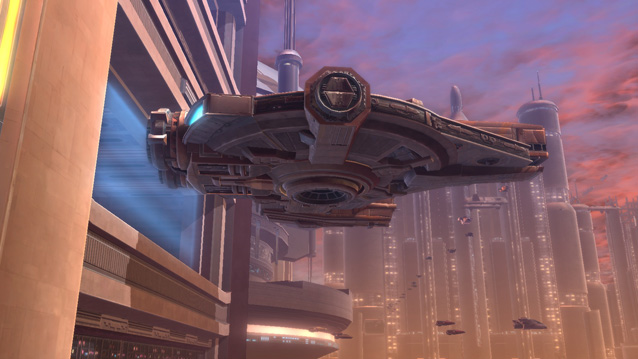
It helps that, as the game progresses, I’ve become slightly more impressed by the game as it’s shown me more things to do. The first and best of these are its “Flashpoints”, the equivalent of dungeons, for parties of four characters. The initial Flashpoint for Republic-side characters takes place on a ship called the “Esseles”, and it’s legitimately fresh and exciting, thanks to BioWare’s propensity for cutscenes. It has three distinct characters, an Imperial Grand Moff who attacks the ship, the ruthless Republic spy/ambassador he’s attempting to capture, and the ship’s first officer who receives a brevet promotion during the attack.
Here the cutscenes add a sense of urgency, a motivating force to an aspect of MMORPGs which often feels purely mechanical. The way the party interactions are done during the cutscenes, where each character picks their option and a random dice roll picks the one that “wins”, can also create an interesting party dynamic, which I’d be excited to see play out. The cutscenes do disrupt the rhythm of the dungeon slightly, but having played a later, less narrative-based dungeon, I have to say I did miss the story from the first one. With that said, I can foresee players getting very frustrated with the inability to simply read the text quickly, as the game forces you to listen to every line of recorded text.
I’ve also been enjoying the Warzones, The Old Republic’s answer to Battlegrounds, where players for eight-character teams and play sports-like games of violence. None of the three games included at the start of The Old Republic will rock anyone’s world, but they’re all smooth, small, and fast, so you can get right into the thick of things and generally have a blast. They’re also set so that every character’s levels are evened out, so that higher-level characters aren’t the dominant force they could be otherwise – everyone has a chance to be useful, even when fighting characters who’d be 10 levels ahead.
So my initial skepticism about the game is wearing off to some degree. It may be replaced by frustration if the servers remain too full – three days before official launch and having the game this crowded might be a great sign for initial sales, and who knows, maybe it will be the WOW-killer it has the potential to be, but I’m sure everyone playing the game would prefer the chance to play it now than simply to line EA’s wallets. We’ll see after the official launch.
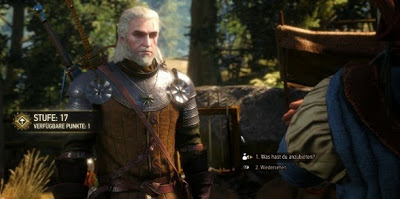
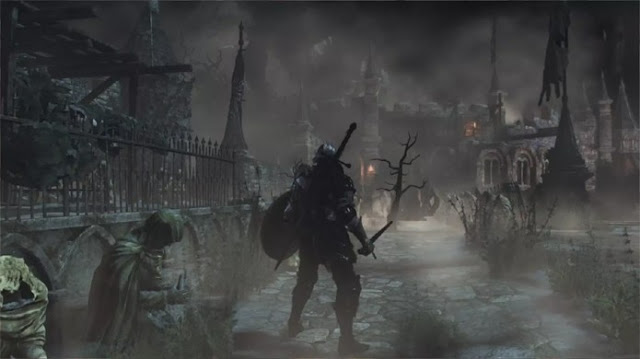

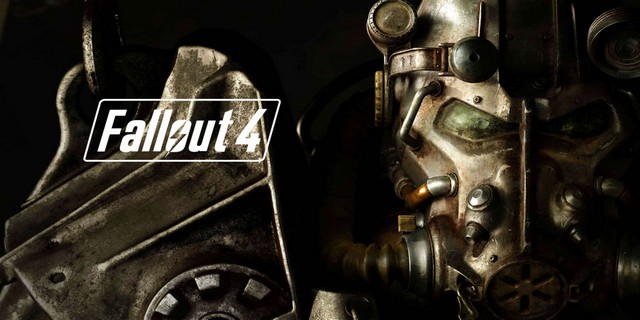
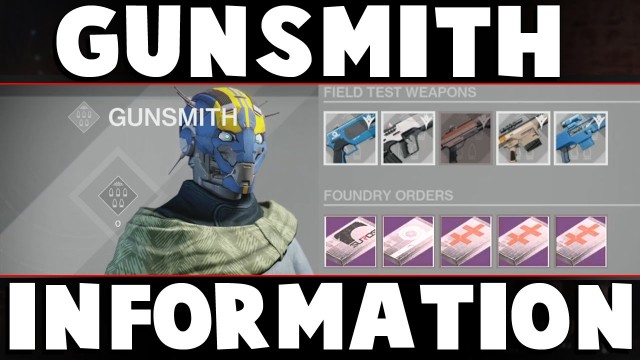 Destiny Field Test Weapons Guide For Week 1: How To Level Up and Best Place To Level Each Weapons
Destiny Field Test Weapons Guide For Week 1: How To Level Up and Best Place To Level Each Weapons Alien: Isolation Walkthrough
Alien: Isolation Walkthrough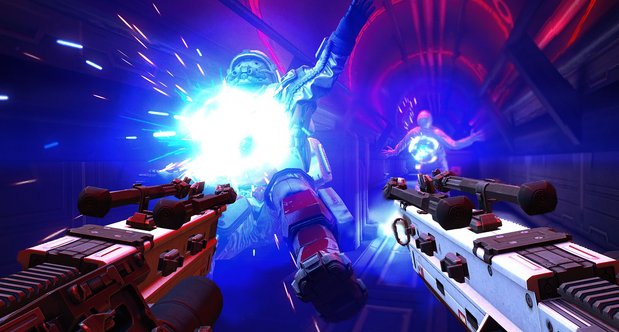 Wolfenstein: The New Order Walkthrough Guide Part 7 - Nostalgic Return to Castle Wolfenstein
Wolfenstein: The New Order Walkthrough Guide Part 7 - Nostalgic Return to Castle Wolfenstein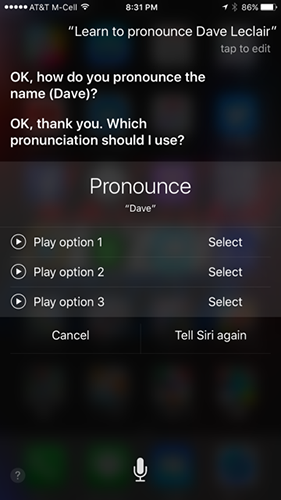 How to Change the Way Siri Pronounces Names
How to Change the Way Siri Pronounces Names 7 Search Engines That Rocked Before Google Even Existed
7 Search Engines That Rocked Before Google Even Existed